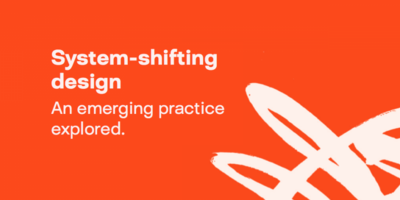Transform Ageing: Arts participation, creativity can Make It Better

Ruth Purdy doesn’t remember the moment she decided to be an artist. “It feels like the only thing I can do,” she says. “It’s kept me going from quite small.”
Purdy, who lives just outside Falmouth in Cornwall, is the founder of a community interest company called Make It Better, which shares creative tools with vulnerable communities in Cornwall. Make It Better brings the health and wellbeing benefits that Purdy has always felt innately from her work to a wider community of people who need it most in care homes and other similar facilities.
Make It Better, which was registered as a Community Interest Company in November, is supported by a £5,000 Transform Ageing grant towards business expenses, like accountancy fees, disclosure barring fees, prints and marketing. The grant, alongside partnerships with other foundations in the region, has allowed Purdy to radically expand her practice to bring in nurseries, libraries, care homes, camera clubs and more.
Arts participation is seen as a vital part of healthy ageing, especially in the South West and Cornwall, where a third of people will be aged over 65 years old by 2036.
Purdy’s initial findings have shown that people who participated in her classes felt in a better mood, because they had something to look forward to each week. “Because you have something to occupy you each week, you have something to distract you from pain and problems,” Purdy says. “We are giving people something to look forward to, a sense of achievement and a sense of awareness about making positive choices in our lives.”
With support from Transform Ageing, Purdy is running a number of schemes across the county in 2018 that will expand her practice and provide more evidence of the benefits.
In Redruth, Make It Better is running a ukulele project to stop people over the age of 50 from becoming isolated. The group is employing a music teacher to train people in playing the ukulele, so they can get together for evenings and make music.
Meanwhile in Plymouth, Make It Better has got money from Devon Community Foundations to work on solutions for an ageing society. The company will visit three extra care schemes in sheltered housing to run sessions, including a weekend event. “We’re going to be doing arts activities bringing in nurseries, libraries, local history, theatre, you name it, to get people connected,” Purdy says. “So, as well as providing an activity we will be getting people to come in and get the connections going.”
There are also photography meetups planned for Plymouth where Make It Better will encourage the use of mobile phones and collaborations with camera clubs.
Purdy studied fine art in Birmingham, followed by an MA in photography at Falmouth. She has always been interested in the therapeutic qualities of the visual arts and how people make and share skills. “I try to give people the tools to live well,” she says. “Having some kind of cultural activity is a vital component of all our lives. As a visual artist, that’s how I use those skills, but I’m also working with musicians and other types of artist.”
She spent a year thinking about Make It Better before registering the name as a community interest company late in 2017. “I was nervous putting myself in a position where I might fail,” she says. “But I realised it doesn’t matter if you fail. I’ll always work to my strengths because that’s what I like doing – I like making and creative activities.”
Her sessions are already having a positive impact at the Longview Care Home in Truro, where she visits every two to three weeks and works with up to six elderly residents for an hour at a time.
Arpan Patel, the manager of Longview, says the care home looks after people with complex needs, especially residents with dementia. While research into the connection between dementia and the arts is ongoing, these residents are repeatedly seen to benefit from arts sessions that stimulate using paint and colours.
“It’s something a bit different,” Patel says. “Some of the residents are so advanced that drawing and painting is an expression of their feelings. It calms the residents, it stimulates them and gets them to think rather than just doing their day-to-day activities, from waking up, eating and going to bed. It keeps their minds active.”
Purdy finds being around people and watching them create is her favourite part of the practice. She says: “I really get a buzz out of seeing people being creative.”
Transform Ageing aims to revolutionise the approach to health, wellbeing and social care for people in later life, starting in the south-west of England. Funded by the Big Lottery, the programme is a partnership between UnLtd, the Design Council, the South West Academic Health Science Network and the Centre for Ageing Better.
Subscribe to our newsletter
Want to keep up with the latest from the Design Council?

